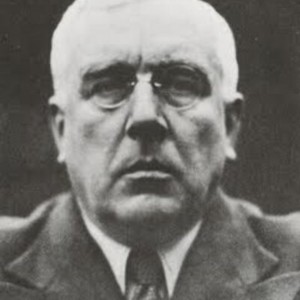 Man does not know himself. He does not know his own limitations and his own possibilities. He does not even know to how great an extent he does not know himself. Man has invented many machines, and he knows that a complicated machine needs sometimes years of careful study before one can use it or control it. But he does not apply this knowledge to himself, although he himself is a much more complicated machine than any machine he has invented.
Man does not know himself. He does not know his own limitations and his own possibilities. He does not even know to how great an extent he does not know himself. Man has invented many machines, and he knows that a complicated machine needs sometimes years of careful study before one can use it or control it. But he does not apply this knowledge to himself, although he himself is a much more complicated machine than any machine he has invented.
He has all sorts of wrong ideas about himself. First of all he does not realize that he actually is a machine. What does it mean that man is a machine? It means that he has no independent movements, inside or outside of himself. He is a machine which is brought into motion by external influences and external impacts. All his movements, actions, words, ideas, emotions, moods and thoughts are produced by external influences.
By himself, he is just an automaton with a certain store of memories of previous experiences, and a certain amount of reserve energy. We must understand that man can do nothing. But he does not realize this and ascribes to himself the capacity to do. This is the first wrong thing that man ascribes to himself. That must be understood very clearly.
Man cannot do. Everything that man thinks he does, really happens. It happens exactly as ‘it rains,’ or ‘it thaws.’ In the English language there are no impersonal verbal forms which can be used in relation to human actions. So we must continue to say that man thinks, reads, writes, loves, hates, starts wars, fights, and so on. Actually, all this happens. Man cannot move, think or speak of his own accord.
He is a marionette pulled here and there by invisible strings. If he understands this, he can learn more about himself, and possibly then things may begin to change for him. But if he cannot realize and understand his utter mechanicalness or if he does not wish to accept it as a fact, he can learn nothing more, and things cannot change for him,
Man is a machine, but a very peculiar machine. He is a machine which, in right circumstances, and with right treatment, can know that he is a machine, and having fully realized this, he may find the ways to cease to be a machine.
First of all, what man must know is that he is not one; he is many. He has not one permanent and unchangeable ‘I’ or Ego. He is always different. One moment he is one, another moment he is another, the third moment he is a third, and so on, almost without an end. The illusion of unity or oneness is created in man first, by the sensation of one physical body, by his name, which in normal cases always remains the same, and third, by a number of mechanical habits which are implanted in him by education or acquired by imitation.
Having always the same physical sensations, hearing always the same name and noticing in himself the same habits and inclinations he had before, he believes himself to be always the same. In reality there is no oneness in man and there is no controlling centre, no permanent ‘I’ or Ego. This is the general picture of man: Every thought, every feeling, every sensation, every desire, every like and every dislike is an ‘I’. These ‘I’s are not connected and are not co-ordinated in any way.
Excerpted from ‘The Psychology of Man’s Possible Evolution.’ holybooks.com
P.D. Ouspensky







